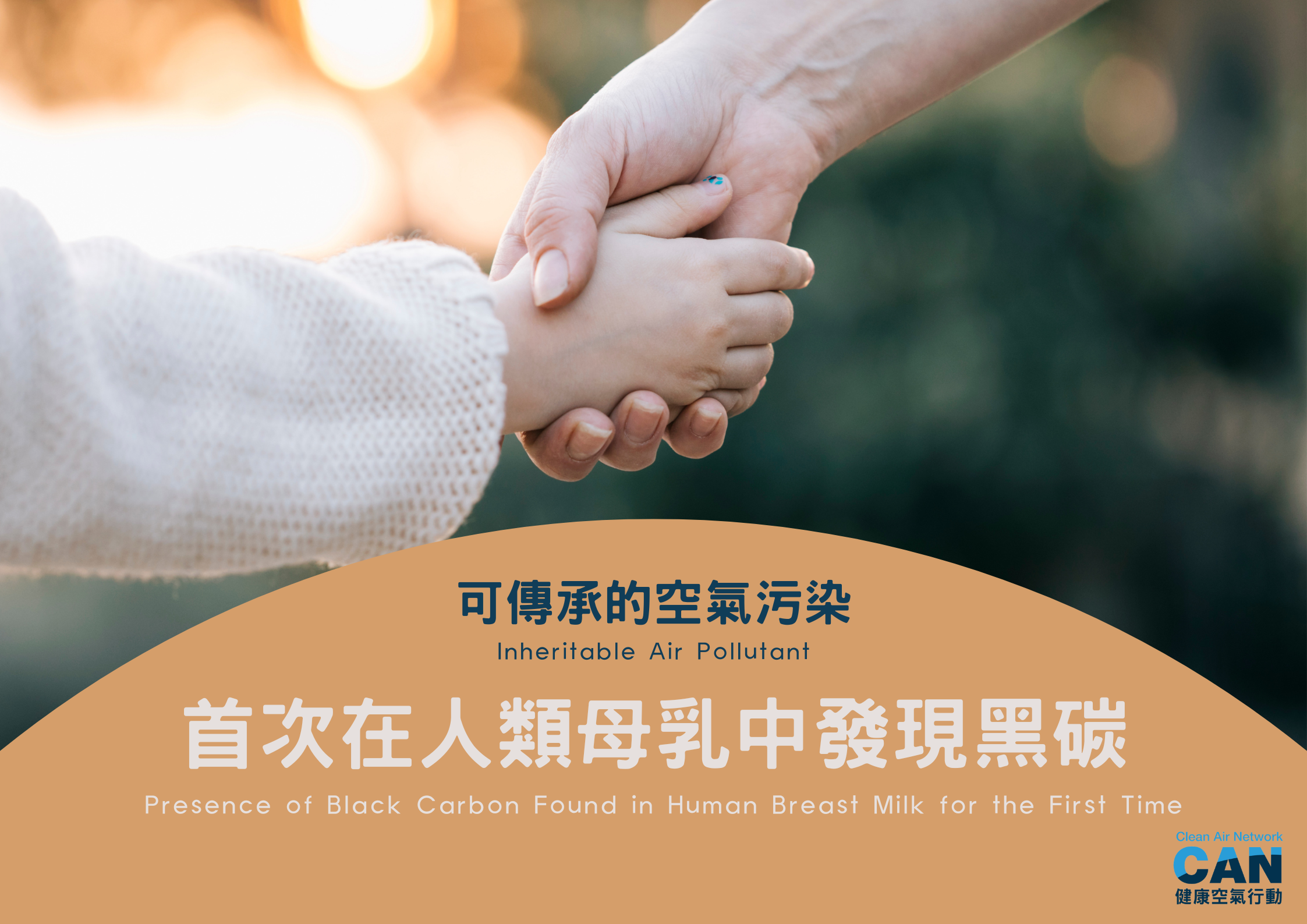
Inheritable Air Pollutant: Presence of Black Carbon Found in Human Breast Milk for the First Time
Breastfeeding has garnered widespread global encouragement and support. The World Health Organization (WHO) and the United Nations Children’s Fund (UNICEF) recommended exclusive breastfeeding during the initial six months of an infant’s life. Locally, an impressive 88.2% breastfeeding rate at the time of discharge was recorded in 2021, according to a survey conducted by the Baby Friendly Hospital Initiative Hong Kong Association. Breastfeeding serves as a vital source of essential nutrients for newborns, safeguarding their health by transmitting maternal antibodies. This not only promotes infants’ growth and development but also confers protective advantages to mothers, shielding them against a range of post-partum diseases and cancer.
While breastfeeding offers numerous advantages, it is regrettable that certain harmful pollutants can be transmitted through breast milk. A study published this year in Belgium revealed, for the first time, the presence of black carbon from the air in human breast milk. Black carbon, categorized as a member of fine particulate matter (PM2.5), an air pollutant, is mainly emitted by the incomplete combustion of vehicle engines and the combustion of fossil fuels. Notably, black carbon exhibits a high retention rate, as a study in Germany has shown that only 3% of inhaled carbon particles are eliminated from the lung periphery within a 24-hour period. This poorly water-soluble black carbon may potentially exacerbate several lung diseases, including inflammation and fibrosis. Although research on the translocation of black carbon from the digestive system intaken from breast milk to the bloodstream, thereby burdening the circulatory system of the infants, is scarce, it is plausible that black carbon can alter the milk and gut microbiome in infants, compromising their immune systems and health.
While the findings of this study may raise concerns, it is essential to underscore the enduring benefits of breastfeeding. Previous research has consistently demonstrated that the advantages of breastfeeding far outweigh any potential exposure to pollutants in infants. Instead of discouraging breastfeeding, it is imperative to advocate for concerted efforts from policymakers and authorities to mitigate air pollution. Clean Air Network has been striving to improve Hong Kong’s air quality to benefit public health and mitigate climate change through our three key pillars of work, including advocacy, empowerment and knowledge. By forging an unbroken connection between mother and infant characterized solely by love, we can ensure that pollutants are not inadvertently transported from the air, safeguarding the well-being of both.
Reference
Cosemans, C., Bongaerts, E., Vanbrabant, K., Reimann, B., Silva, A. I., Tommelein, E., Poma, G., Ameloot, M., Nawrot, T. S., & Plusquin, M. (2024). Black carbon particles in human breast milk: assessing infant’s exposure. Frontiers in public health, 11, 1333969. https://doi.org/10.3389/fpubh.2023.1333969
Möller, W., Felten, K., Sommerer, K., Scheuch, G., Meyer, G., Meyer, P., Häussinger, K., & Kreyling, W. G. (2008). Deposition, retention, and translocation of ultrafine particles from the central airways and lung periphery. American journal of respiratory and critical care medicine, 177(4), 426–432. https://doi.org/10.1164/rccm.200602-301OC

